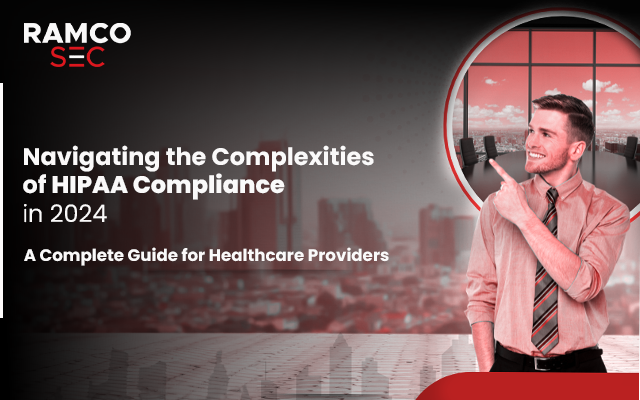Introduction
In 2024, the importance of HIPAA (Health Insurance Portability and Accountability Act) compliance has never been more crucial. With the rise of cyber threats targeting the healthcare sector and an increasing number of data breaches making headlines, healthcare providers must prioritize protecting sensitive patient information. This blog will explore the evolving landscape of HIPAA compliance, the latest updates in regulations, and practical strategies to maintain compliance in a rapidly changing environment.
Understanding HIPAA Compliance
HIPAA was enacted in 1996 to establish national standards for protecting sensitive patient health information. The legislation mandates that healthcare providers, health plans, and other entities that handle protected health information (PHI) implement stringent security measures to protect this data. Failure to comply with HIPAA regulations can result in severe penalties, including hefty fines and legal action.
However, HIPAA compliance isn’t just about avoiding penalties; it’s about safeguarding patient trust and ensuring the confidentiality, integrity, and availability of health information. As healthcare organizations continue to digitize their operations, the need for robust security measures becomes even more critical.
The Evolving Landscape of HIPAA Compliance in 2024
The cybersecurity landscape is constantly evolving, and so are the threats facing healthcare organizations. In 2024, healthcare providers must be aware of several emerging trends that impact HIPAA compliance:
- Increased Ransomware Attacks: Ransomware attacks on healthcare organizations have surged in recent years. Cybercriminals target healthcare providers because they know that access to patient records is crucial for daily operations. A successful ransomware attack can paralyze a healthcare organization, leading to significant disruptions and potential harm to patients.
- Telehealth and Remote Work: The COVID-19 pandemic accelerated the adoption of telehealth and remote work in the healthcare sector. While these changes have improved access to care, they have also introduced new security challenges. Protecting PHI in remote environments and ensuring secure communication between providers and patients are now top priorities.
- Third-Party Risks: Many healthcare organizations rely on third-party vendors for services such as billing, cloud storage, and IT support. However, these vendors can introduce vulnerabilities if they do not adhere to HIPAA requirements. Managing third-party risks and ensuring vendor compliance is essential to maintaining overall security.
- Regulatory Updates: HIPAA regulations are not static; they evolve to address new threats and challenges. Healthcare providers must stay informed about any changes to the law and adjust their compliance strategies accordingly.
Best Practices for HIPAA Compliance
Maintaining HIPAA compliance in 2024 requires a proactive approach. Here are some best practices that healthcare providers should follow:
- Conduct Regular Risk Assessments: A thorough risk assessment is the foundation of HIPAA compliance. Healthcare organizations must identify potential risks to PHI and implement appropriate safeguards to mitigate these risks. Risk assessments should be conducted regularly and updated as new threats emerge.
- Implement Strong Access Controls: Limiting access to PHI is crucial for preventing unauthorized access. Healthcare providers should implement role-based access controls, ensuring that only authorized personnel can access sensitive information. Multi-factor authentication (MFA) is another effective measure to enhance security.
- Encrypt PHI: Encryption is a key security measure for protecting PHI, especially when it is transmitted or stored electronically. Healthcare organizations should use encryption protocols that meet HIPAA standards to ensure that patient data remains secure.
- Train Employees: Human error is a leading cause of data breaches in healthcare. Regular training programs can help employees understand their responsibilities under HIPAA and how to recognize potential security threats. Employees should be educated on topics such as phishing, secure password practices, and proper handling of PHI.
- Monitor and Audit Access Logs: Continuous monitoring and auditing of access logs can help detect and respond to unauthorized access attempts. Healthcare providers should implement logging mechanisms that track access to PHI and regularly review these logs for suspicious activity.
- Develop an Incident Response Plan: Even with the best safeguards in place, data breaches can still occur. Healthcare organizations must have a robust incident response plan that outlines the steps to take in the event of a breach. This plan should include procedures for notifying affected individuals, reporting the breach to authorities, and mitigating the impact on patients.
- Ensure Vendor Compliance: Healthcare providers must work closely with their third-party vendors to ensure that they comply with HIPAA regulations. This includes conducting due diligence when selecting vendors, obtaining Business Associate Agreements (BAAs), and regularly reviewing vendors’ security practices.
Partnering with Ramcosec for HIPAA Compliance
Navigating the complexities of HIPAA compliance can be challenging, especially for healthcare organizations with limited resources. This is where partnering with a trusted cybersecurity firm like Ramcosec can make a significant difference.
At Ramcosec, we specialize in helping healthcare providers achieve and maintain HIPAA compliance. Our team of experts offers a range of services, including risk assessments, policy management, employee training, and incident response planning. We stay up-to-date with the latest regulatory changes and cybersecurity trends, ensuring that our clients are always prepared for new challenges.
By partnering with Ramcosec, healthcare organizations can focus on what they do best—providing quality care to their patients—while we take care of their cybersecurity needs. Our tailored solutions are designed to meet the unique needs of each client, providing peace of mind that their patient data is secure.
Conclusion
HIPAA compliance is more important than ever in 2024, as cyber threats continue to evolve and healthcare organizations face new challenges. By following best practices and partnering with experts like Ramcosec, healthcare providers can protect their patients’ sensitive information, maintain regulatory compliance, and build trust with those they serve.
Staying ahead of the curve in HIPAA compliance requires a proactive approach and a commitment to continuous improvement. With the right strategies and support, healthcare organizations can navigate the complexities of HIPAA compliance and safeguard their future in an increasingly digital world.







